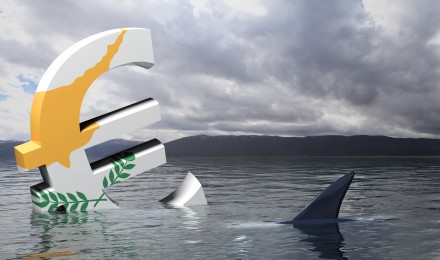The United States has so many problems right now it is difficult to name them all. But as bad as things are here, Europe continues to “outperform”. Take almost any economic metric available and Europe’s situation looks worse. It’s so bad in fact, that it is somewhat puzzling that an implosion hasn’t already occurred. Yes, there have been some tumultuous elections and even strikes and protests, but thus far the general mood has been remarkable in its calm. Because, really…things are bad:
Europe is on the verge of a genuine collapse. On the one hand, this is because the Euro simply does not work, but makes things worse instead. On the other hand, Eurozone member states are simply unable to devaluate their currencies as they are part of the single currency bloc.
Is that a tad hyperbolic? Maybe, but the facts sure are bleak. After the bailouts of Greece and Portugal and Spain — and lets not forget that Cypress bank deposit confiscation — many Euro bigwigs claimed that the problems were solved and growth and prosperity were imminent. Now, it is fair to say that people were highly skeptical of these comments, but nonetheless Europe’s problems seemed to recede from the headlines. The markets too, as CNBC and analysts in general rarely mentioned Europe as a hindrance to worldwide recovery, let alone in regards to the U.S. But, nothing much actually changed with European economies over the last 18 months or so, and the bills are beginning to come due from the last round of troubles:
Spain is one of the Eurozone’s largest countries. It is not in a recession, but in a downright depression. Do you need some figures? Unemployment stands at 26.3 percent?. That means more than one out of every four workers is idling and receiving benefits from government and waiting for better days. Even worse, youth unemployment is a staggering 57 percent.
And, of course, some of the smaller countries are in even worse shape than this. This cannot be sustained for much longer. No one knows the future, but a society can only go so long on this type of trajectory. Germany, or more accurately its citizens, has just about had it with the grand Eurozone experiment and any new round of bailouts will be met with skepticism at best. Where and when will this Euro game end? It’s impossible to say, but it is looking less and less likely that it arrive at a happy place:
Europe is an ageing, moribund continent and the sh*t will hit the fan sooner rather than later. Europe has simply run out of money due to its overgenerous entitlements. What will it take for people to start noticing?
That is indeed the question, especially for investors. Europe is still important in the worldwide economy. Additionally, it’s not like the U.S. isn’t on the exact same path. Europe would be easier to ignore if America had balanced budgets and a roaring economy, but that is far from the reality. In the meantime, keep your eyes on Europe as it seems it has to break one way or another, and soon.
The United States has so many problems right now it is difficult to name them all. But as bad as things are here, Europe continues to “outperform”. Take almost any economic metric available and Europe’s situation looks worse. It’s so bad in fact, that it is somewhat puzzling that an implosion hasn’t already occurred. Yes, there have been some tumultuous elections and even strikes and protests, but thus far the general mood has been remarkable in its calm. Because, really…things are bad:
Europe is on the verge of a genuine collapse. On the one hand, this is because the Euro simply does not work, but makes things worse instead. On the other hand, Eurozone member states are simply unable to devaluate their currencies as they are part of the single currency bloc.
Is that a tad hyperbolic? Maybe, but the facts sure are bleak. After the bailouts of Greece and Portugal and Spain — and lets not forget that Cypress bank deposit confiscation — many Euro bigwigs claimed that the problems were solved and growth and prosperity were imminent. Now, it is fair to say that people were highly skeptical of these comments, but nonetheless Europe’s problems seemed to recede from the headlines. The markets too, as CNBC and analysts in general rarely mentioned Europe as a hindrance to worldwide recovery, let alone in regards to the U.S. But, nothing much actually changed with European economies over the last 18 months or so, and the bills are beginning to come due from the last round of troubles:
Spain is one of the Eurozone’s largest countries. It is not in a recession, but in a downright depression. Do you need some figures? Unemployment stands at 26.3 percent?. That means more than one out of every four workers is idling and receiving benefits from government and waiting for better days. Even worse, youth unemployment is a staggering 57 percent.
And, of course, some of the smaller countries are in even worse shape than this. This cannot be sustained for much longer. No one knows the future, but a society can only go so long on this type of trajectory. Germany, or more accurately its citizens, has just about had it with the grand Eurozone experiment and any new round of bailouts will be met with skepticism at best. Where and when will this Euro game end? It’s impossible to say, but it is looking less and less likely that it arrive at a happy place:
Europe is an ageing, moribund continent and the sh*t will hit the fan sooner rather than later. Europe has simply run out of money due to its overgenerous entitlements. What will it take for people to start noticing?
That is indeed the question, especially for investors. Europe is still important in the worldwide economy. Additionally, it’s not like the U.S. isn’t on the exact same path. Europe would be easier to ignore if America had balanced budgets and a roaring economy, but that is far from the reality. In the meantime, keep your eyes on Europe as it seems it has to break one way or another, and soon.






